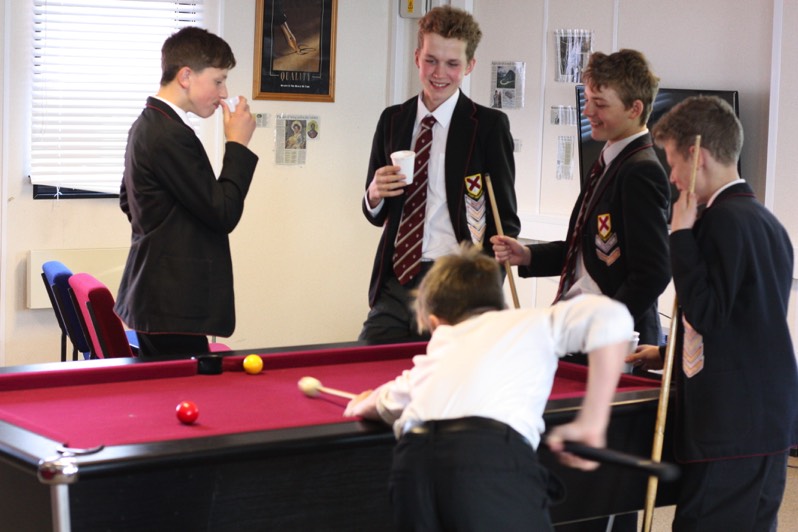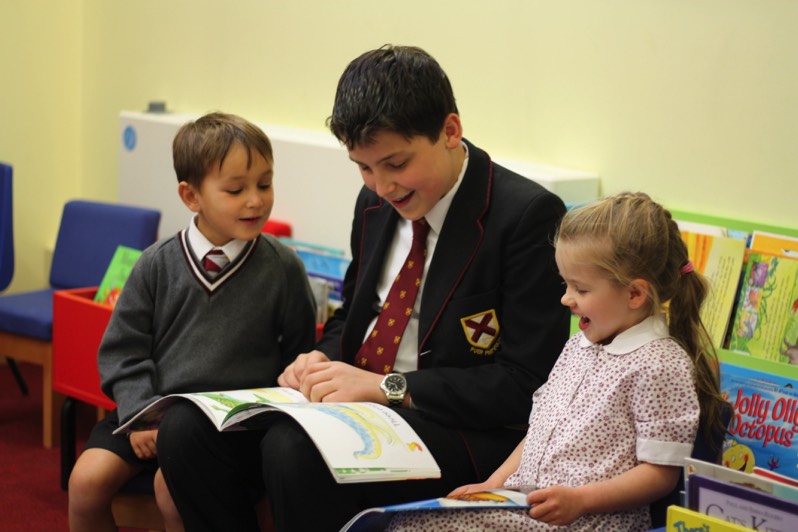EDUCATION
Surrey’s Premier Lifestyle Magazine
Testing times
Michael Connolly, headmaster of Cranmore School, explores the increasing problem of exam stress for young people.

For previous generations of school pupils, the summer term meant more opportunities for outdoor pursuits, especially sports such as cricket, athletics or tennis. Increasingly, these activities which promote healthy living and social skills are being displaced for children of all ages who are swotting away for a raft of exams. This phenomenon is not confined to those young adults who are sitting A-Levels, but includes primary age children faced with the new ‘tougher’ tests for Year 2 and Year 6.
A survey conducted by Newsround to assess children’s emotional responses to these new exams produced some disturbing statistics: 59% felt some pressure to do well, but 29% were experiencing “a lot of pressure”. In fact, 27% revealed that they actually felt “stressed” with many claiming it had affected their sleep. It is against this background that we are beginning to see a revolution.
The Let Our Kids Be Kids campaign has gained momentum with the support of some 40,000 signatures to boycott the exams.
Should we accept that exam nerves are all part and parcel of growing up and children should be left to get on with it? Is this, in fact, the new normal? It is beginning to seem that way when one notices the plethora of self-help books and multi-media resources to combat stress which are aimed at children.
It is true that most children might be a little anxious before tests, but the stress levels which some young children experience today cannot be a good thing. Some might argue that it makes them more resilient, but, in my view, it is just as likely to make them neurotic with little core confidence in the long term. Those professionals who work with children, especially in schools, recognise the importance of ensuring that children should never be ground down into a state of permanent angst as it can lead to problems in later life. Learning should be stimulating, challenging and, whenever possible, fun too. It is this approach which will give young learners the positive experiences which will boost their self-esteem and utilise their latent talents.
A survey conducted by Newsround to assess children’s emotional responses to these new exams produced some disturbing statistics: 59% felt some pressure to do well, but 29% were experiencing “a lot of pressure”. In fact, 27% revealed that they actually felt “stressed” with many claiming it had affected their sleep. It is against this background that we are beginning to see a revolution.
The Let Our Kids Be Kids campaign has gained momentum with the support of some 40,000 signatures to boycott the exams.
Should we accept that exam nerves are all part and parcel of growing up and children should be left to get on with it? Is this, in fact, the new normal? It is beginning to seem that way when one notices the plethora of self-help books and multi-media resources to combat stress which are aimed at children.
It is true that most children might be a little anxious before tests, but the stress levels which some young children experience today cannot be a good thing. Some might argue that it makes them more resilient, but, in my view, it is just as likely to make them neurotic with little core confidence in the long term. Those professionals who work with children, especially in schools, recognise the importance of ensuring that children should never be ground down into a state of permanent angst as it can lead to problems in later life. Learning should be stimulating, challenging and, whenever possible, fun too. It is this approach which will give young learners the positive experiences which will boost their self-esteem and utilise their latent talents.
Perhaps professional educators and parents would do well to heed the advice of A.S. Neill, the man who founded an alternative model of liberal education in 1921 at Summerhill School which is still flourishing today:
“The function of a child is to live his/her own life, not the life that his/her anxious parents think he/she should live, nor a life according to the purpose of the educators who think they know best.”
Parents want the best for their child and, in a competitive world, they often want to give them an ‘edge’. This has been one of the main drivers for the explosion in the number of pupils who have private tutors. Sadly, it has become such an arms race that even parents who are not inclined to pursue this option feel compelled to do so just to even up their child’s chances. This has been building for some time and back in 2013 The Guardian launched an investigation which uncovered several underlying influences for this trend. However, what was quite striking was the high number of tutoring hours given to young children as revealed by this comment: “I tutored one child from the age of eight for six hours per weekend, four on Saturday and two on Sunday (with additional weekday tuition around exams). I now tutor five children for four or more hours per week. Three of these children receive further tuition in other subjects from other tutors.”
“The function of a child is to live his/her own life, not the life that his/her anxious parents think he/she should live, nor a life according to the purpose of the educators who think they know best.”
Parents want the best for their child and, in a competitive world, they often want to give them an ‘edge’. This has been one of the main drivers for the explosion in the number of pupils who have private tutors. Sadly, it has become such an arms race that even parents who are not inclined to pursue this option feel compelled to do so just to even up their child’s chances. This has been building for some time and back in 2013 The Guardian launched an investigation which uncovered several underlying influences for this trend. However, what was quite striking was the high number of tutoring hours given to young children as revealed by this comment: “I tutored one child from the age of eight for six hours per weekend, four on Saturday and two on Sunday (with additional weekday tuition around exams). I now tutor five children for four or more hours per week. Three of these children receive further tuition in other subjects from other tutors.”

It seems to me that the high volume of private tutoring on top of an already busy school day could be a significant contributor to children’s anxiety and stress. One hopes that more parents will come to see that it is important to offer their child a balanced childhood not dominated by endless hours of study and revision. At Cranmore School, we believe that only a holistic perspective on education is right for a child so that they can develop and nurture their talents in the right way, at the right pace, and at the right time.
essence info
Cranmore School has embarked on a programme of change progressing to full co-education for pupils aged two and a half to thirteen years. Children study the standard subjects as well as a stimulating curriculum including French, Mandarin, Spanish, Latin, Greek and a wide selection of extra-curricular activities. The excellent facilities include a golf course, swimming pool, fitness suite and also a Forest School so that the youngest pupils from the nursery onwards can experience real ‘outdoors education’.Telephone: 01483 280340
Website: www.cranmoreprep.co.uk



